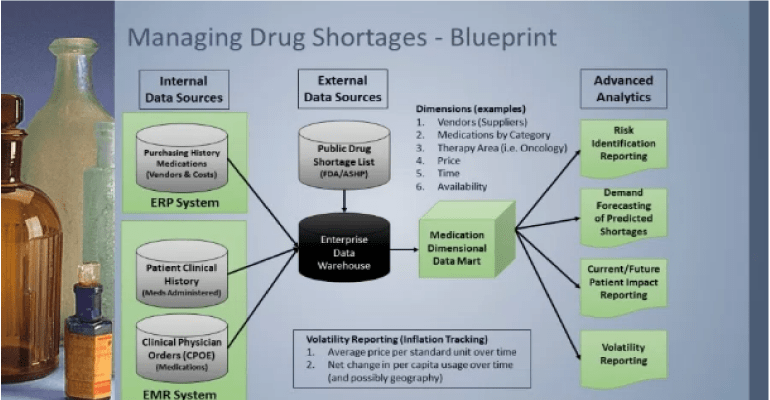
Drugs and medical devices may cost ten times as much in the U.S. as in other advanced countries, and the most basic essential drugs are increasingly scarce, reports the Association of American Physicians and Surgeons (AAPS) in the April issue of AAPS News. In some hospitals, women undergoing Caesarian section are unable to have spinal anesthesia, the safest form for mother and baby, because local anesthetics are unavailable. Pain killers are in short supply for trauma victims or post-operative patients. Even intravenous fluids (sterile salt solutions) may have to be rationed.
Where is the money going, and why don’t drug manufacturers step up production to meet the demand?
Between the manufacturer and the user, there appears to be as much as a $200 billion per year leak that goes to helpful-sounding entities like group purchasing organizations (GPOs) and pharmacy benefits managers (PBMs). Companies that want to sell their product have to pay the middleman. If the cost is too high, a company, such as an alternate supplier of drugs, may not be able to afford to enter the market. This “pay-to-play” arrangement may be called something desirable or benign, like a “rebate” or “shareback.” But it amounts to the same thing as payola or a kickback, states AAPS News.
There is already a law, the Antikickback Statute, that was passed in 1972. It is a very broad law, with more than 20 safe harbors to protect normal business practices against enforcement. In 1987, Congress passed the “mother of all safe harbors” for GPOs, and this was expanded to PBMs in 2003.
PBMs have a stranglehold on access, states Robert Campbell, M.D., of Physicians against Drug Shortages. Sole-source contracts, not Hurricane Maria, are responsible for gutting domestic supply capacity, he writes.
A powerful buyers’ monopoly—called a monopsony—consisting of four giant GPOs and three PBMs (UnitedHealth Group, CVS Caremark, and Express Scripts) control 90 percent of annual contracting volume and 70 percent of prescription drugs.
The American College of Emergency Physicians (ACEP) and the Association of Mature American Citizens (AMAC), among others, are calling for the repeal of the GPO/PBM safe harbor.
“Value-based payment needs to be based on value to the patient,” states AAPS executive director Jane M. Orient, M.D., “not to a cartel of voracious middlemen.”
